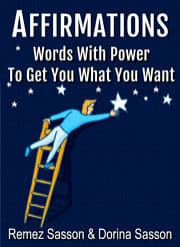
You can try these simple techniques on your own, with a friend or with a group. Whatever the route you choose, ensure that you remain flexible and not get stressed about relaxation! See our website for more information.
Relaxation Guidance
1. Breathe
One of the simplest yet instantaneous ways to relax is to consciously take deep and slow breaths.
You can count slowly up to five with each inhalation and exhalation and ensure your heart and pulse rates drop to normal levels.
2. Self-Talk
You can create your own self talk or dialog that helps you to calm down. It can be a series of phrases or words such as “I’m OK, I’ll get through this,” repeated several times mentally.
Some people have found that counting slowly up to ten helps them pause before reacting. This is known as autogenic relaxation, where you calm yourself with a certain ritual or set of actions.
You can also imagine a peaceful landscape, replay a pleasant memory in your head, or imagine your body relaxing completely.
3. Muscle relaxation
In this technique, you observe your breathing and consciously slow it down. After this, you can progressively relax each part of your body by mentally naming it and tightening and loosening it until your entire body is relaxed.
4. Tech assisted relaxation
Modern techniques use technology to help you relax. These include biofeedback apps or devices that measure blood pressure, heart rate, pulse rate, temperature, and muscle tension. You can use this information to consciously slow down with deep breathing.
5. Journaling
Apart from physical relaxation, your mind needs to be in a rest and digest state too.
Journaling is one of the most effective ways to express thoughts and ideas that build up in your mind. Providing them with a safe outlet ensures that they don’t clog your functioning and block your feel-good hormones.
Keeping a journal helps you record your daily activities, determine where and when you are most productive, and identify areas where you are stressed or wasting time.
6. Exercise
Another simple, affordable and convenient way to release tension is exercise. It releases muscle tension, helps you to focus, and you get the added bonus of serotonin and other feel-good hormones in your bloodstream.
You can choose the exercise that best suits your needs, preferences, convenience, and budget. Make sure that you select something that you’ll stick to, that’s easy to access, and doesn’t require too many props or accessories.
If you love group activities, choose something like aerobics or dancercise, otherwise stick with walking or running.
You can also mix and match for different days of the week. Some forms of exercise, such as yoga or tai chi, can be performed both solo and in groups.
7. Meditation
Far from being an esoteric and mysterious practice, meditation can be as simple as you want. It can be maintaining a mere ten minutes of silence in a crowded airport lounge, or it could be an hour on the beach, of quiet focus on your innermost being.
Regular meditation helps you to stay calm and focused when faced with stressful situations.
8. Therapies
A host of relaxation therapies are available. You can choose aromatherapy, art or music therapy, hydrotherapy, and more.
It is important that you practice these forms of relaxation only under the supervision and guidance of a trained expert. Some people have benefited from hypnosis, but again, you must be very cautious about it.
9. De-Clutter
Strange as it may seem, organizing and decluttering have a huge therapeutic effect. They help you focus and concentrate on a task.
Don’t take on a massive project all at once. Break it up into sections and work on each one in sequence. Use an aid such as a Pomodoro timer to help you take breaks at regular intervals.
At the end of the project, you will feel a great sense of achievement and peace.
10. Set Boundaries
There is no doubt that reaching out to friends and family has a beneficial effect. However, it is equally important to set boundaries and limits so that socializing doesn’t cause more stress.
Learn to say “No” gracefully and firmly, without feeling guilty about refusing. Respect your time and that of others.
The same goes for your work life too. Maintaining a reasonable work-life balance helps you achieve your career goals without burnout.
Let people know that your exercise or meditation times are sacrosanct, and that you are not available during these times unless it is an emergency.

